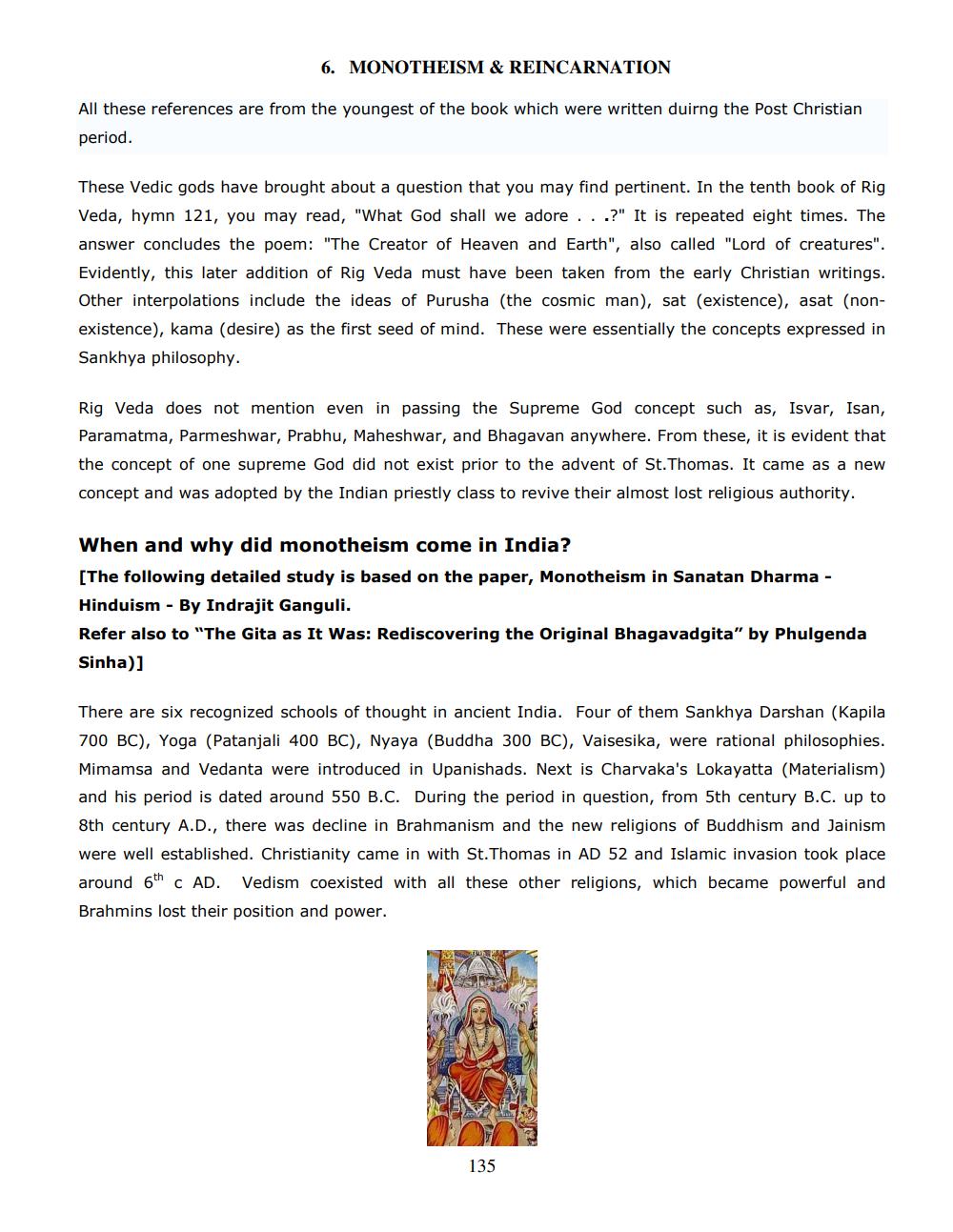________________
6. MONOTHEISM & REINCARNATION
All these references are from the youngest of the book which were written duirng the Post Christian period.
These Vedic gods have brought about a question that you may find pertinent. In the tenth book of Rig Veda, hymn 121, you may read, "What God shall we adore ...?" It is repeated eight times. The answer concludes the poem: "The Creator of Heaven and Earth", also called "Lord of creatures". Evidently, this later addition of Rig Veda must have been taken from the early Christian writings. Other interpolations include the ideas of Purusha (the cosmic man), sat (existence), asat (nonexistence), kama (desire) as the first seed of mind. These were essentially the concepts expressed in Sankhya philosophy.
Rig Veda does not mention even in passing the Supreme God concept such as, Isvar, Isan, Paramatma, Parmeshwar, Prabhu, Maheshwar, and Bhagavan anywhere. From these, it is evident that the concept of one supreme God did not exist prior to the advent of St. Thomas. It came as a new concept and was adopted by the Indian priestly class to revive their almost lost religious authority.
When and why did monotheism come in India? [The following detailed study is based on the paper, Monotheism in Sanatan DharmaHinduism - By Indrajit Ganguli. Refer also to "The Gita as It Was: Rediscovering the Original Bhagavadgita" by Phulgenda Sinha)]
There are six recognized schools of thought in ancient India. Four of them Sankhya Darshan (Kapila 700 BC), Yoga (Patanjali 400 BC), Nyaya (Buddha 300 BC), Vaisesika, were rational philosophies. Mimamsa and Vedanta were introduced in Upanishads. Next is Charvaka's Lokayatta (Materialism) and his period is dated around 550 B.C. During the period in question, from 5th century B.C. up to 8th century A.D., there was decline in Brahmanism and the new religions of Buddhism and Jainism were well established. Christianity came in with St. Thomas in AD 52 and Islamic invasion took place around 6th C AD. Vedism coexisted with all these other religions, which became powerful and Brahmins lost their position and power.
135




